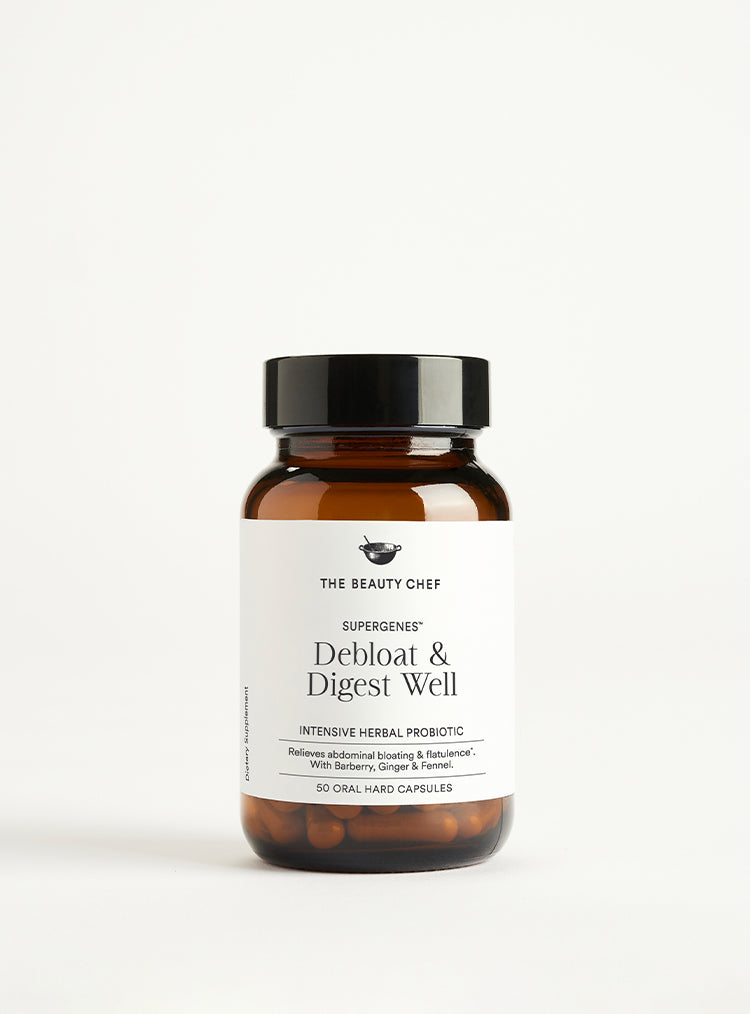
Considering it’s something we all do, farts are rarely (if ever) talked about. We get it, the state of your flatulence isn’t exactly dinner table conversation. But just like your poo, your farts can give great insight into your health.
Not one to frequently expel your gas? Well, according to research, an individual farts between 12-25 times a day. In fact, farting is often a sign of healthy digestion rather than cause for embarrassment.
While you might not always notice your wind (and there’s a reason for that), some changes can result in uncomfortable symptoms that certainly grab your attention. So, is your farting normal? Here’s the lowdown on the breeze from down below...
First things first... what exactly are farts?
Farts are when the body releases gas from the lower gastrointenstinal tract. This gas is produced by the millions of microorganisms and gut bacteria living inside you—aka your gut microbiome.
For the most part, farting simply means that too much gas has built up in the body and it is now ready to exit. And while releasing it in certain circumstances may not always be acceptable, ultimately, there’s only two ways the body can release gas: farts and burps.
What does it mean if my farts are really smelly?
Despite their stinky reputation, farts are largely composed of odourless gases including oxygen, nitrogen, carbon dioxide and methane. So it’s entirely possible for farts to go unnoticed, by being both silent and without scent.
As for that unmistakable whiff of rotten eggs, you can blame that on hydrogen sulphide. Produced by both gut epithelial cells and the gut microbiome, this pungent gas isn’t all bad news. At appropriate levels, it can protect the gut barrier and increases the production of the antioxidant glutathione, which improves cellular defense against oxidative stress—so the odd smelly fart every now and then shouldn’t be cause for concern.
However, studies have linked higher levels of hydrogen sulphide with symptoms of IBS. And when elevated, the gas can disrupt gut barrier function and contribute to inflammation, meaning that consistently smelly farts could be a sign of compromised gut health.
Is it bad to hold in a fart?
There are plenty of situations when releasing a fart isn’t ideal—but holding it in doesn’t necessarily make it disappear. In some situations (despite your best efforts), gas may still expel slowly and in small amounts.
Otherwise, the gas is likely to stay put until it can be released later, which can cause discomfort such as cramping and bloating—particularly if held for a long time. Those with IBS may find holding in farts even more uncomfortable, as they’re more sensitive to pain in relation to bowel movements.
Although holding in farts can worsen digestive symptoms and cause discomfort, it shouldn’t have any long-term implications—as long as the gas eventually escapes, one way or another.
Can food affect how often I fart?
We’ve all heard the rhyme about "beans, beans, the magical fruit” and there is truth to the fact that your farts can be influenced by what you eat—but it may not be the culprits you were expecting.
In regards to our smelly friend hydrogen sulphide, its foul odour is encouraged by excess amounts of protein. Particularly forms that are rich in sulphur, including beef, eggs, pork, fish and poultry.
Another unassuming suspect is artificial sweeteners. Specifically, polyols, which are commonly found in foods and drinks labelled ‘low-sugar’ or ‘diet’. According to studies, excess amounts of polyols can induce symptoms of flatulence, abdominal discomfort, and laxative effects (fun fact: Polyols is what the “P” in FODMAP stands for).
If you are experiencing excessive amounts of flatulence or particularly smelly farts, avoiding foods you may be allergic, sensitive or intolerant to, can also help to minimise odour and frequency.
For any accompanying symptoms such as abdominal bloating, spasms and indigestion, our SUPERGENES™ Debloat & Digest Well capsules contain ingredients used in Western Herbal Medicine to support healthy digestive system function and assist with the reduction of flatulence.
4 tips for healthy farts
Gut bacteria is essential for proper digestion and, subsequently, healthy farts. So try switching your mindset from ‘gross’ to ‘great’ and focus on...
Supporting good digestion – Fill your plate with a diverse range of wholefoods at mealtimes and chew everything well to assist with the chemical breakdown of carbohydrates and fats. Always leave a few hours between eating and going to bed.
Identifying intolerances – Pinpoint the triggers that tend to increase the frequency and odour of your farts. Avoid or consume in moderation to lessen their effects.
Introducing probiotics – Multiple strains of probiotics have been shown in studies to provide significant reduction in flatulence and bloating. One way to up your daily dose of probiotics is to include fermented foods (think kimchi, kefir, sauerkraut, miso, tempeh and cultured yoghurt) in your diet.
Staying hydrated – Constipation can be another cause of smelly farts. Considering faecal composition is approximately 70-75 per cent water, staying hydrated will help to keep things moving.



